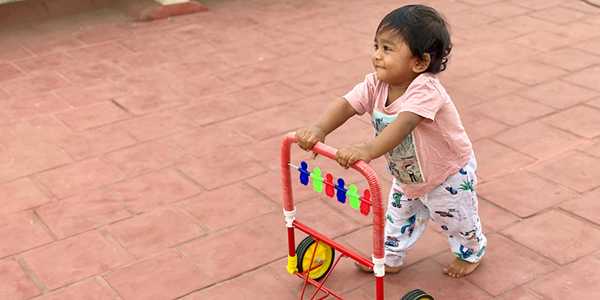The Importance And Benefits Of Play In Early Childhood
Play is the job of children, it is how they learn, develop, grow, and discover things about both themselves and the world around them. It is a full-time job, and the benefits are nearly endless but begins with coordination, brain and emotional development, social skills, and how to manage emotions.
Physical Benefits Of Play
When playing children learn how their body moves. It is through play they will learn to reach for things, grab things, learn new skills such as walking, running bike riding, and improve their coordination. It assists in developing hand-eye coordination and provides the basis for learning who they are as a separate entity from their parent. Balance develops as they begin to reach for things, stand, run, and skip or spin. All of these actions are part of controlling their muscles and learning how their muscles respond when they try to do things.
Emotional Benefits Of Play
All children will develop ways to manage their emotions, and often this is through play. They will learn confidence, develop self-esteem, grow resilient, and become more independent. It is through play that they engage their curiosity, wonder what happens if they do something and then see the result of doing it. Playing with others also helps to learn how to work together, how to interact with others their age and other ages, develop social skills for many situations, and find how to manage difficult situations. All of these are key parts of development and are necessary for becoming a responsible and independent adult and starting through play is how they begin to develop these skills.

Social Benefits Of Play
Playing with others is also necessary to learn how to interact in a positive manner with other people, and how to feel their own feelings. They will face disappointment, joy, upset, and frustration, and develop ways to manage those while learning how to move past their feelings and deal with them in a healthy way. Persistence will develop as they continue to do things that they find difficult, solve problems with others, and seek solutions for concerns that arise. It is necessary for children to learn how to interact confidently with others who are their age, and it will help them to develop their own personality and even set goals for themselves. They become consistent and learn to keep trying, moving past failure to try again.
Playing On Screens
As technology continues to be more and more important and involved in daily life, children will need to learn how to operate devices and how to engage with them in a healthy way. Like all other skills, this is done through practice and through play. When deciding to implement screen time set limits on time, use child-friendly devices such as a child's tablet that doesn’t access the internet, and supervise all screen time. Not only will they learn how to use them, but they will also develop better hand-eye coordination, learn how hard or soft touch affects devices, and how to put down the screen and move on to do something else. As children age, they will be doing homework and research on devices from computers to tablets, and those who are already learning before their peers may have a slight advantage, learning as they grow will provide the ability to adapt to new situations, new devices, and new programs.

Playing With Your Child
Playing with children is a key part of encouraging their development, bonding with them, and teaching them how to form relationships. It also provides them the opportunity when they are older to share information and begin hard conversations with you when they arise. It also encourages you to remain close to your child, enjoy watching them grow, and be involved with their interests. If you are trying to teach your child a new skill, use play to do so. Find games that encourage reading, bike riding to improve balance, swimming for stamina and safety, and skipping for coordination. Imaginative play, often involving dolls or stuffed animals of some kind, is key to supporting the growth of their imagination and creativity, helping them to improve problem-solving and practicing social interactions. Building toys is important for learning how things around them work and how to interact with things in the world around them every day.
Several studies show the importance of play, and it is one of the easiest ways to maintain a close bond with your child as they grow. It creates a strong base relationship that you can build upon that will help them to feel safe and supported even in teen and adult years, keeping you as a safe and involved part of their life. Encourage your child to play with all types of toys and games, support them as they try new things, and encourage them to play independently for stretches of time to boost their confidence and creativity.



